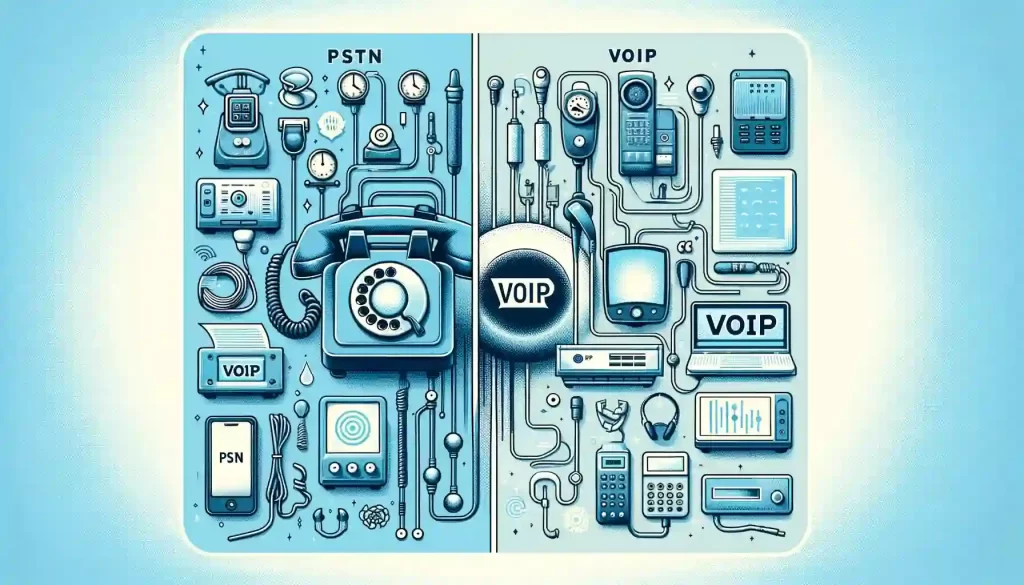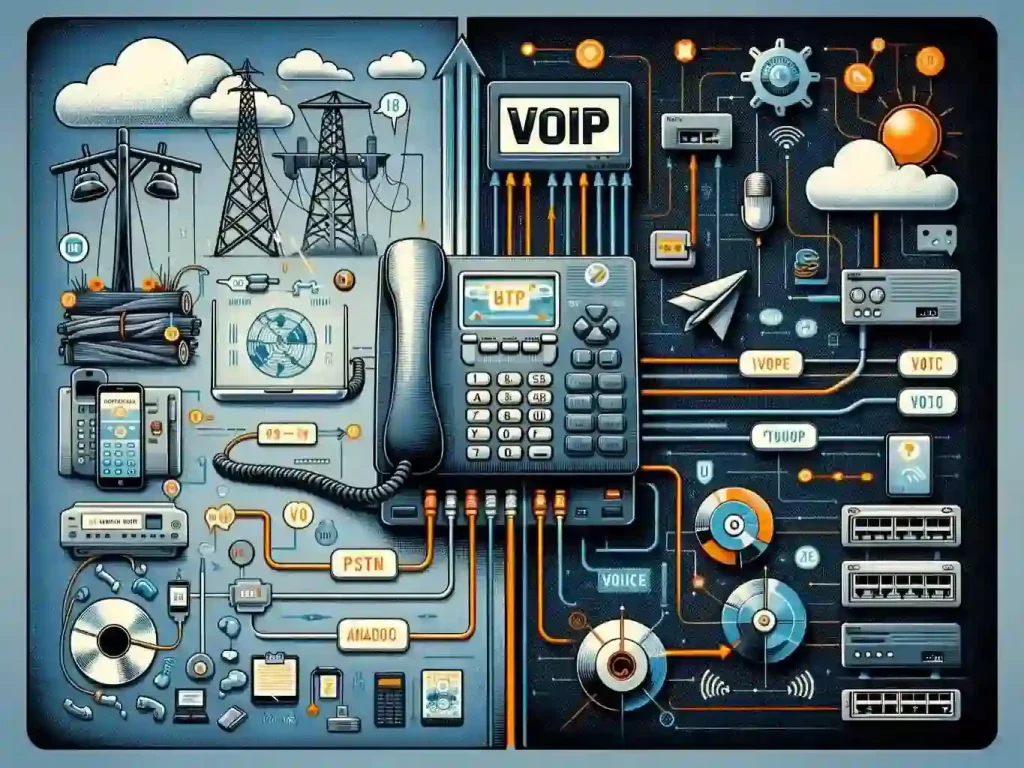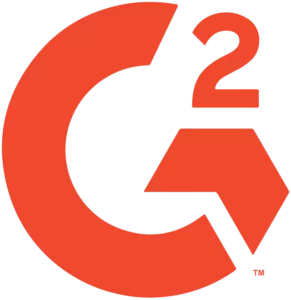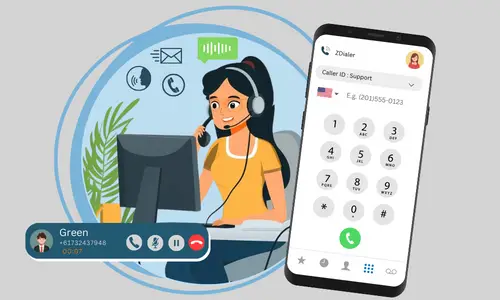PSTN vs VoIP: Understanding Your Communication Option
Exploring the Pros and Cons of PSTN and VoIP for Business Communications
In today's digital age, communication is vital for businesses. This page explores the benefits of both PSTN (Public Switched Telephone Network) and VoIP (Voice over Internet Protocol) to help you choose the right communication solution for your needs.

Understanding PSTN: The Traditional Phone Network

PSTN stands for Public Switched Telephone Network, the traditional phone system that has been in use for decades. It relies on copper wires and analog signals to transmit voice data. While reliable, it can be expensive and lacks some modern features.
Unveiling the Dynamics: How PSTN Powers Call Connectivity
Unveiling the
Dynamics

User dials a phone number on their device.
Routing the
Call

Local exchange identifies the call's destination.
Establishing
Connection

Call travels through network switches and trunks.
Completing
the Call

Call reaches recipient's phone for communication.
Exploring VoIP: The Future of Communication

VoIP (Voice over Internet Protocol) is a modern technology that uses the internet to transmit voice data. It offers cost savings, scalability, and a wide range of features. VoIP is the future of communication for businesses of all sizes.
Unlocking Seamless Conversations: The Dynamics of VoIP Communication
Voice Conversion

Analog voice is digitized into data packets.
Packet
Transmission

Data packets travel over the internet infrastructure.
Routing &
Reassembly

Packets are routed and reassembled at destination.
Voice Playback

Data is converted back to voice for communication.
Comparing PSTN vs VoIP: Key Differences
PSTN
Technology
Traditional telephone network that relies on circuit-switching technology to transmit analog voice signals.
Maintenance
Requires ongoing maintenance and periodic hardware upgrades.
Scalability
Requires physical lines and hardware upgrades to expand capacity, making it less scalable.

VoIP
Technology
Employing internet technology, it efficiently transmits voice data in the form of digital packets.
Maintenance
Generally requires less maintenance and updates compared to PSTN systems.
Scalability
Easily scalable and can accommodate a large number of users without significant infrastructure changes.

PSTN vs VoIP: Bridging the Gap in Communication Solutions
Choosing between VoIP and PSTN depends on your specific needs. VoIP offers cost-effectiveness, versatility, scalability, and integration with modern tools, making it ideal for businesses seeking flexibility and feature-rich communication. Conversely, PSTN, with its renowned reliability, low maintenance, and crucial role in emergency services, remains a solid choice when uninterrupted voice quality and regulatory compliance are paramount. Consider your priorities carefully to make the right decision for your communication requirements.
Securing Communications: PSTN vs VoIP - Know Your Options
PSTN Security:
![]() Physical Security: PSTN's physical lines provide inherent security advantages.
Physical Security: PSTN's physical lines provide inherent security advantages.
![]() Call Interception: Rare but possible through wiretapping or physical access.
Call Interception: Rare but possible through wiretapping or physical access.
![]() Regulatory Oversight:Stringent regulations ensure security and compliance standards.
Regulatory Oversight:Stringent regulations ensure security and compliance standards.
![]() Reliability: Dedicated lines make PSTN less susceptible to cyberattacks, ensuring reliability.
Reliability: Dedicated lines make PSTN less susceptible to cyberattacks, ensuring reliability.
VoIP Security:
![]() Encryption: VoIP employs strong encryption for confidential data transmission.
Encryption: VoIP employs strong encryption for confidential data transmission.
![]() Firewalls & Access Control: Safeguard VoIP networks with robust access controls.
Firewalls & Access Control: Safeguard VoIP networks with robust access controls.
![]() Vulnerabilities: VoIP faces threats like DDoS, phishing, and malware attacks.
Vulnerabilities: VoIP faces threats like DDoS, phishing, and malware attacks.
![]() Quality of Service: Ensuring low latency and minimal packet loss is vital.
Quality of Service: Ensuring low latency and minimal packet loss is vital.
My Country Mobile's Trusted Partnerships









My Country Mobile Reviews

4.6 out of 5

4.8 out of 5

4.7 out of 5

4.9 out of 5

Ever since I made the strategic move from the outdated PSTN to VoIP for my business, the benefits of pstn vs voip have been astonishing. PSTN vs VoIP cost savings are undeniable – the flat-rate plans in VoIP are amazing, and I don't have to worry about surprise charges for long-distance calls. Plus, the features like auto-attendants and voicemail transcription save me time and money by handling customer inquiries efficiently. The transition from PSTN to VoIP has been a game-changer, and I'm thrilled with the results.


Our business thrives on innovation, and VoIP perfectly aligns with that vision. The advanced features like call recording and analytics provide valuable insights into customer interactions, helping us improve our service and boost sales. The integration with other business tools also streamlines our workflows and enhances overall efficiency.


I'm not just looking for cost savings, but also environmentally friendly solutions. VoIP's reduced reliance on physical infrastructure minimizes its carbon footprint, which aligns with my values. Plus, the crystal-clear call quality ensures effective communication without compromising the environment.
Embrace the Next Generation of Communication: Understanding the Differences and Advantages of PSTN vs. VoIP
Unlock Superior Call Quality, Unbeatable Reliability, and Revolutionary Features with Our In-Depth Exploration of PSTN vs VoIP Technologies
FAQs For PSTN vs VoIP
What is VoIP and PSTN?
- PSTN: Public Switched Telephone Network, the traditional telephone system based on copper wire networks and analog technology to facilitate voice communication.
- VoIP: Voice over Internet Protocol, a modern communication technology that transmits voice and multimedia content over the internet.
What are the basic technology?
- PSTN: Traditional system utilizing circuit-switched telephony.
- VoIP: Modern method that transmits voice data over the internet.
What are the infrastructure Requirement?
- PSTN: Requires extensive physical infrastructure with copper wires.
- VoIP: Primarily requires an internet connection and compatible devices.
What are the cost implication?
- PSTN: Generally involves higher costs due to maintenance of physical lines.
- VoIP: Lower costs, especially for long-distance and international calls.
What are the costs of scaling the system?
- PSTN: Scaling up can be costly and slow due to additional hardware.
- VoIP: Easily scalable with minimal additional infrastructure.
How is the quality of the call?
- PSTN: Consistent call quality with less dependence on external factors.
- VoIP: Quality can vary based on internet bandwidth and network stability.
What is the expected uptime of the system?
- PSTN: Highly reliable with a mature infrastructure.
- VoIP: Reliability has improved but can be affected by power outages or internet disruptions.
What are the features and capabilities?
PSTN vs VoIP: While PSTN offers standard features like call waiting, caller ID, and voicemail, VoIP provides advanced features including video calls, file sharing, and virtual communication capabilities. Explore the feature-rich options of PSTN vs VoIP.
What are the recommended maintenance procedures for this system?
- PSTN: Complex setup and professional maintenance required.
- VoIP: Easier setup and maintenance can often be done remotely.
What are the future outlook?
PSTN vs VoIP: While PSTN technology is phasing out, with many providers switching to digital systems, VoIP is continuously evolving with advancements in internet technologies. Explore the differences and evolution of PSTN vs VoIP in modern communication













